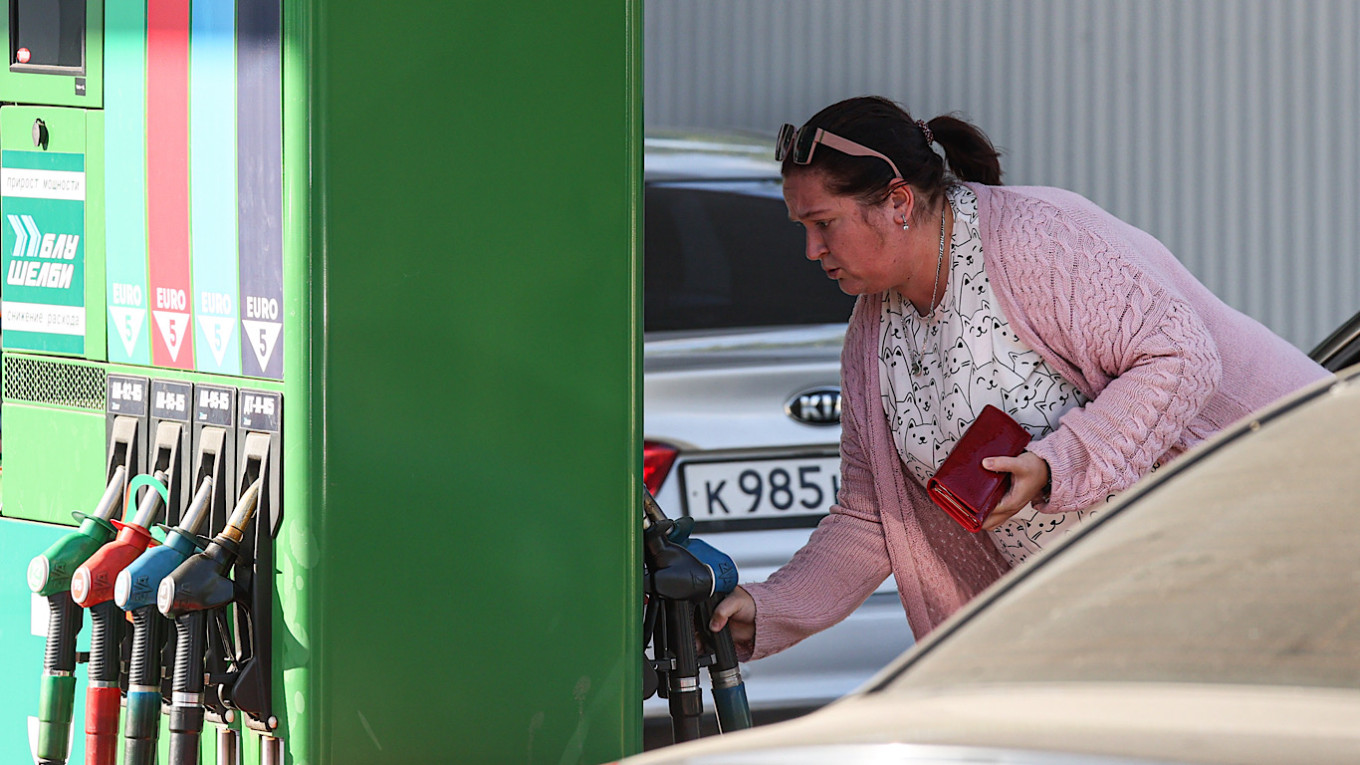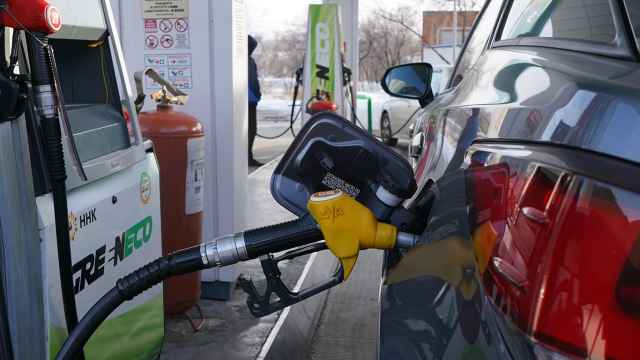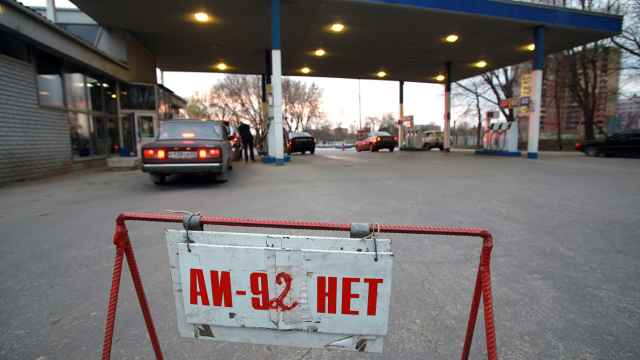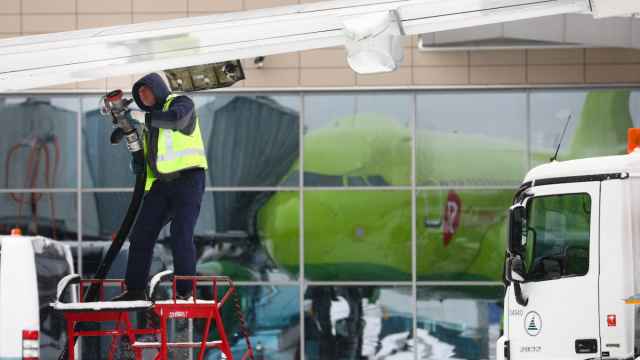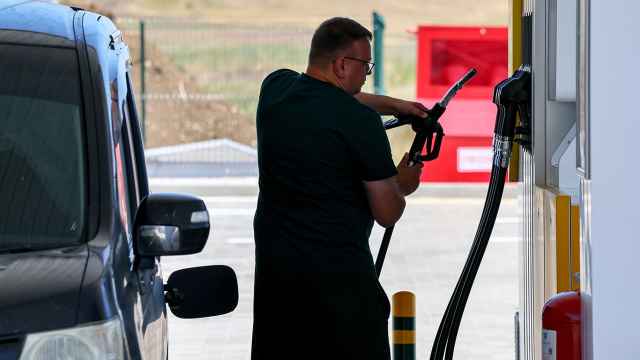The Russian government seeks to scrap tariffs on gasoline imports and temporarily allow a banned chemical additive to stabilize the domestic fuel market, the Kommersant business daily reported Wednesday.
Wholesale gasoline prices in Russia have surged in recent months, driven largely by Ukrainian drone attacks that have damaged oil refineries and forced shutdowns at several major facilities.
The proposed measures could redirect at least 350,000 tons of gasoline and 100,000 tons of diesel per month to the domestic market, Kommersant cited a letter from Deputy Prime Minister Alexander Novak to Prime Minister Mikhail Mishustin sent last Wednesday, Sept. 24, as saying.
Analysts told Kommersant the steps could ease short-term pressure but would not address deeper structural problems in the Russian fuel sector.
Novak’s proposals include scrapping the 5% import duty for state-controlled companies like Rosneft on gasoline shipped from China, South Korea and Singapore.
To make shipments viable, the government plans to apply Russia’s “damper” subsidy mechanism to push domestic gasoline processing below the world market. Industry experts warned that high transport costs may blunt the effect of duty-free imports for central Russia.
Novak also proposed temporarily lifting a ban on the use of the chemical additive monomethylaniline (MMA) that boosts octane levels in lower-grade fuel.
Mishustin and Novak’s offices have not commented on the reported measures, nor did Russia's finance and energy ministers respond to Kommersant's requests for comment.
The Russian government on Tuesday announced it extended its ban on gasoline exports and introduced new restrictions on diesel shipments until the end of 2025.
Industry experts say those measures are unlikely to dramatically increase domestic supplies.
According to Kommersant, Novak suggested boosting Belarusian fuel imports from 45,000 tons in September to 300,000 tons per month.
He also proposed allowing limited use of ethanol in gasoline production and adjusting technical standards to allow gasoline with higher shares of aromatic hydrocarbons.
Separately, the Moscow-led Eurasian Economic Commission trade bloc on Tuesday announced the suspension of fuel import tariffs across the region from Oct. 10 to June 30, 2026.
A Message from The Moscow Times:
Dear readers,
We are facing unprecedented challenges. Russia's Prosecutor General's Office has designated The Moscow Times as an "undesirable" organization, criminalizing our work and putting our staff at risk of prosecution. This follows our earlier unjust labeling as a "foreign agent."
These actions are direct attempts to silence independent journalism in Russia. The authorities claim our work "discredits the decisions of the Russian leadership." We see things differently: we strive to provide accurate, unbiased reporting on Russia.
We, the journalists of The Moscow Times, refuse to be silenced. But to continue our work, we need your help.
Your support, no matter how small, makes a world of difference. If you can, please support us monthly starting from just $2. It's quick to set up, and every contribution makes a significant impact.
By supporting The Moscow Times, you're defending open, independent journalism in the face of repression. Thank you for standing with us.
Remind me later.


